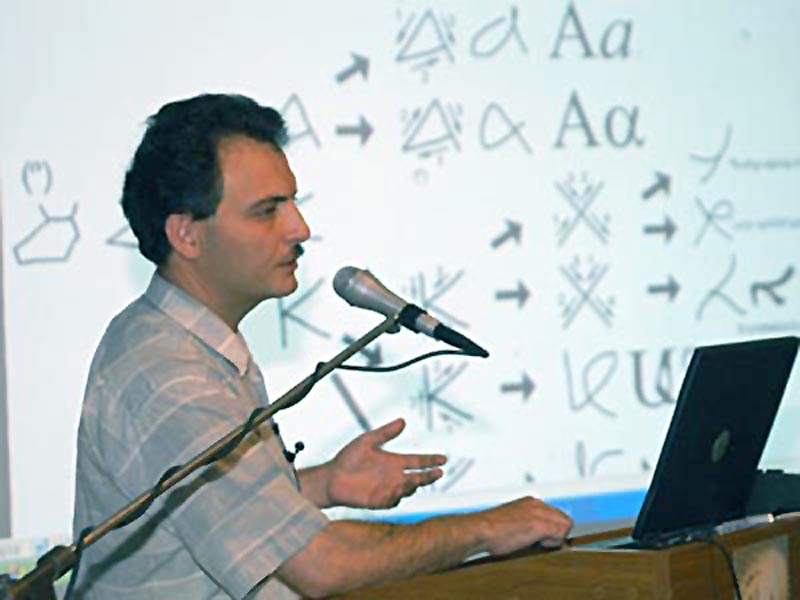On October 5-7, Iran and the Caucasus, a journal published by Brill publishers, Leiden-Boston, in association with Yerevan State University, Modus Vivendi, the Caucasian Center for Iranian Studies, the Armenian Association for Academic Partnership and Support (ARMACAD) NGO and other organizations will organize an academic conference on the Caucasian and Caspian Region. According to the announcement on the website of ARMACAD, the working languages of the conference are English and Russian.
Ruben Tarumyan, a letter-inventor and a member of We Are Against Reopening Foreign Schools initiative, is anxious about this. He told www.aravot.am that the fact that Armenian was not included in the working languages contradicted to the Armenian legislation.
“I express my indignation, why can’t they guarantee simultaneous interpretation for everyone. In Armenia, the state, official language is Armenian and it should serve all functions in our country. If we don’t guarantee simultaneous interpretation even for 1%, it means that we treat Armenian speakers as second-class people in our country. I understand that simultaneous interpretation is expensive, but it doesn’t mean that we should sell our state language, because we don’t have money to pay the interpreters. Particularly after adopting the disgraceful law on foreign schools, this can be considered as the continuation of doing everything to humiliate the Armenian language and to violate the Constitution,” Ruben Tarumyan thinks.
Vardan Voskanyan, a member of the organizing committee of the conference and a docent of the Department of Iranian Studies, Yerevan State University, explained to www.aravot.am, “The mentioned event is to discuss issues strictly professional and academically urgent, it is only for Orientalists and Caucasologists. Every academic event has its working language, the task of which is not to ensure public comprehension of the conference, because this one for instance is not a political event or an event for the general public, it is strictly professional and the purpose is to ensure that the participants in the conference understand each other,
agree with academic theses, discuss and debate. The issue of the indigenous peoples of the Caucasian and Caspian Region is also of certain political significance – it has certain political overtones, so holding the event in Armenian would impede reaching its main targets. Representatives of the given peoples who live in the respective areas and don’t know Armenian will be deprived of getting and being acquainted with the respective messages. And we would like the languages to be perceivable for the very indigenous peoples.”
Voskanyan also added, “For some reason, they refer to the provisions of the Language Act, which don’t concern the given event, when the object of criticism is weak, so to speak, and no one talks about, say, the names of entertainment facilities, casinos and taxis. Many people know that the main place, where the Language Act is violated, is the very American University, where there is no instruction in Armenian, but no one complains about it.”
Gohar HAKOBYAN























































